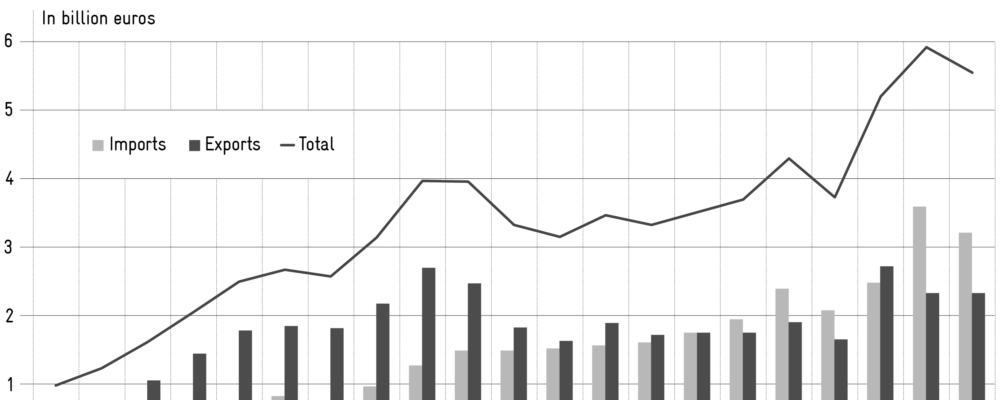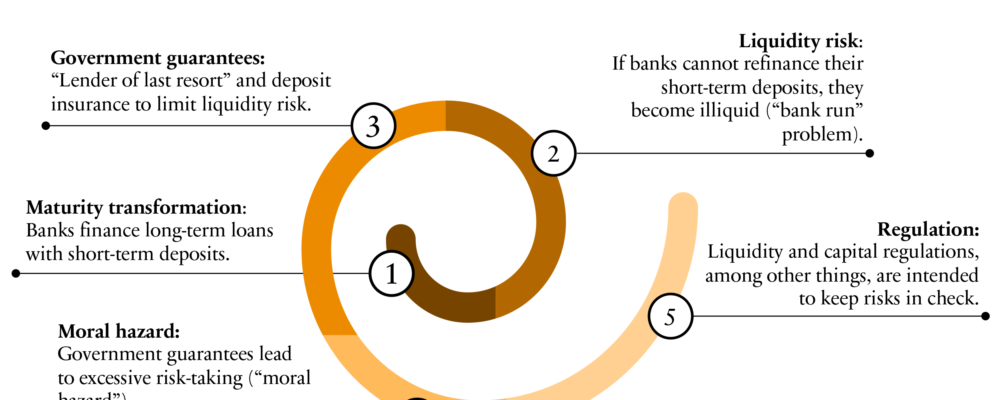As part of the Paris Agreement of 2017 ‒ and backed up by a Federal Council decision in 2019 ‒ Switzerland has committed to becoming climate neutral by 2050. The reduction targets adopted so far are 20% by 2020 and 50% by 2030 versus the greenhouse gas (GHG) emissions of 1990. According to the latest figures from the federal greenhouse gas inventory, the goal was narrowly missed in 2020 with an overall reduction of 19%. The different economic sectors contributed to the reduction to varying degrees: minus 39% for building, 15% for manufacturing, 14% for agriculture, 8% for transport, and minus 2% for all other emitters combined. The pressure to act thus remains high. This is especially true considering that the figures for 2020 were lower than in normal circumstances owing to the pandemic, which among other things limited mobility. In other words, it’s high time to get going.
Does the Federal act of September 30, 2022, on climate protection goals, innovation, and strengthening energy security ‒ or climate protection act, as it’s referred to in the media ‒ meet the four criteria of an effective climate policy as defined by Avenir Suisse?
If carbon-intensive technologies remain untaxed, there’s zero true cost pricing. (Chris Leboutillier, Unsplash)
- Effectiveness: A proposal should be judged first and foremost by the degree to which it leads to a reduction in CO2 emissions. The present law aims to reduce emissions through subsidies by making more climate-friendly energy sources or processes cheaper than fossil alternatives. The law doesn’t include all emitters but focuses on the provision of heat in buildings and new technologies to increase energy efficiency in industry. Mobility or, for example, agriculture aren’t covered and require additional measures. Under these conditions, the effectiveness of the climate act can be rated as average at best.
- Efficiency: The efficiency criterion refers to the CO2 reduction that a proposal achieves per Swiss franc invested. The Environment, Spatial Planning, and Energy Committee of the National Council (Espec-N) itself gives the following example: “With 200 million Swiss francs in additional subsidies, around 10,000 additional heating systems can be replaced per year and a CO2 reduction of 0.1 million metric tons can be achieved. In other words, the mitigation costs amount to CHF 2,000 per metric ton of CO2, which is an exorbitant price. Even one of the most expensive technologies today ‒ extracting CO2 from the air and permanently storing it in the ground ‒ costs less than a third. In an international context, the cost is often even less than CHF 50 per metric ton of CO2. The efficiency can therefore be considered to be close to zero.
- True cost pricing: A third criterion, and the key element of an effective climate policy, is true cost pricing. This ensures that the originator of CO2 emissions (or their future impacts on the climate) bears the costs that would otherwise be borne by (future) society. Subsidies don’t create true cost pricing; on the contrary, they distort the truth on both sides of the equation: Low-carbon technologies are subsidized, while the CO2-intensive ones aren’t taxed. The bill thus bears zero relation to the actual costs.
- Technology neutrality: A policy shouldn’t favor, disadvantage or even prohibit specific technologies per se. The climate act doesn’t prohibit any technologies, but it does favor projects that a panel deems worthy of support. This violates the principle of technology neutrality and increases the likelihood of the measure’s efficiency being suboptimal. The law therefore has zero technology neutrality.
A tax on fossil fuels ‒ regardless of how they’re used ‒ and its redistribution to the population would be a simple instrument to give Switzerland a boost on its path toward reaching net zero. Such a levy would also meet the four aforementioned criteria with ease. And yet, such a measure isn’t up for the vote.
By itself, Switzerland won’t “save” the climate. But with an effective and efficient climate policy committed to true cost pricing and technology neutrality, this country can serve as a role model ‒ certainly not to make itself feel superior, but as a political blueprint for other countries.
For more in-depth information on the topic, see our study Effective Climate Policy and another blog post on the climate protection act.
“Avenir Suisse is an independent think tank that works for the future of Switzerland by developing evidence-based, liberal, free-market ideas.”
Please visit the firm link to site






